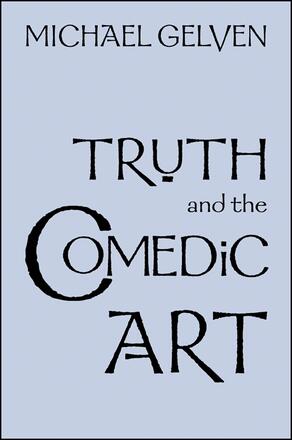
Truth and the Comedic Art
Alternative formats available from:
A philosophical inquiry into the essence of comedy.
Description
Traditional philosophy places a singular emphasis on tragedy, acting under the assumption that tragedy is more profound than comedy. Gelven argues that comedy deserves equal if not greater attention from philosophy. Through the interpretative readings and concrete analysis of three classical works, Gelven shows that comedy provides an access to truth unavailable by any other means. Silvius in Shakespeares's As You Like It, Cherubino in Mozart's The Marriage of Figaro, and Lord Goring in Wilde's An Ideal Husband are examined in terms of why and how they are comic, along with how and why they are seen both as fools and yet as graced. Gelven finds that in revealing the spirit of graced folly, comedy teaches us about our own essence, the fundamental nature of our finitude. This will undoubtedly be of considerable importance not only to philosophical aestheticians or literary critics, but also for those seeking to understand the nature of truth itself.
Michael Gelven is Distinguished Research Professor of Philosophy at Northern Illinois University, and has authored many books, including The Risk of Being: What It Means to be Good and Bad.
Reviews
"This is a profound and original work; and though it employs a Heideggerian notion of truth, it tells us more about comedy as truth than Heidegger or anyone else has. It is an elegant and eloquent statement of its topic, filled with insights."— Donald W. Livingston, author of Philosophical Melancholy and Delirium
"Anyone who has felt the power of a great comedy and is willing to think about what he feels will find this book indispensable. Comedies inspire us with a certain joyful wisdom that is hard to define or articulate. The extraordinary accomplishment of this book is to describe and explain this distinctly comedic wisdom in all of its aspects. What this book provides is not only a way of thinking about comedy, but a new way of thinking period." — Francisco J. Gonzalez, author of Dialectic and Dialogue: Plato's Practice of Philosophical Inquiry